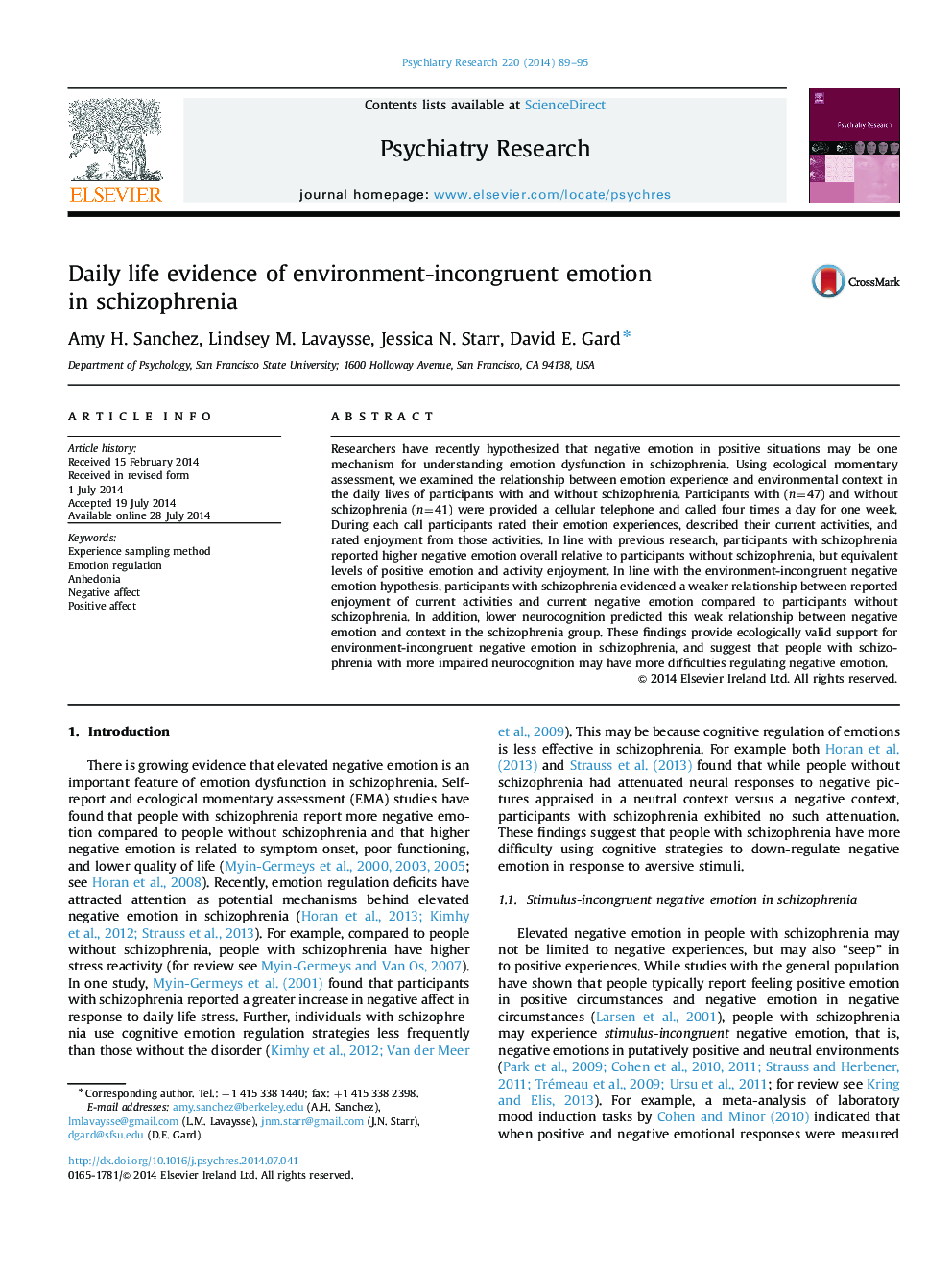| Article ID | Journal | Published Year | Pages | File Type |
|---|---|---|---|---|
| 6814647 | Psychiatry Research | 2014 | 7 Pages |
Abstract
Researchers have recently hypothesized that negative emotion in positive situations may be one mechanism for understanding emotion dysfunction in schizophrenia. Using ecological momentary assessment, we examined the relationship between emotion experience and environmental context in the daily lives of participants with and without schizophrenia. Participants with (n=47) and without schizophrenia (n=41) were provided a cellular telephone and called four times a day for one week. During each call participants rated their emotion experiences, described their current activities, and rated enjoyment from those activities. In line with previous research, participants with schizophrenia reported higher negative emotion overall relative to participants without schizophrenia, but equivalent levels of positive emotion and activity enjoyment. In line with the environment-incongruent negative emotion hypothesis, participants with schizophrenia evidenced a weaker relationship between reported enjoyment of current activities and current negative emotion compared to participants without schizophrenia. In addition, lower neurocognition predicted this weak relationship between negative emotion and context in the schizophrenia group. These findings provide ecologically valid support for environment-incongruent negative emotion in schizophrenia, and suggest that people with schizophrenia with more impaired neurocognition may have more difficulties regulating negative emotion.
Related Topics
Life Sciences
Neuroscience
Biological Psychiatry
Authors
Amy H. Sanchez, Lindsey M. Lavaysse, Jessica N. Starr, David E. Gard,
